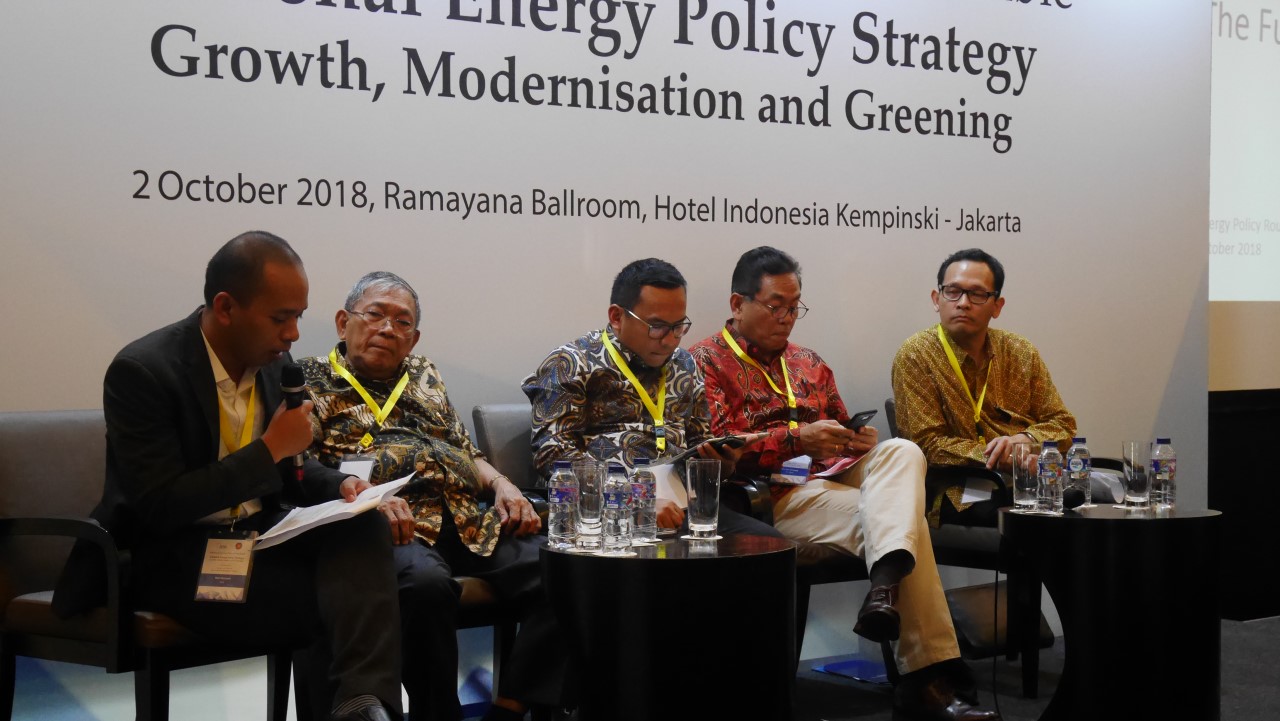Menu

As an effort to achieve its goal in becoming a regional centre of excellence which builds a coherent, coordinated, focused and robust energy policy agenda and strategy for ASEAN, ASEAN Centre for Energy (ACE) collaborated with International Institute of Strategic Studies (IISS) in organising the Indonesia Energy Policy Roundtable on 2 October 2018 in Jakarta, Indonesia. The Roundtable’s objective is to provide a neutral platform for stakeholders to identify and discuss some of the key enablers and barriers to a greener energy economy in Indonesia.

Indonesia’s position is significant to further ASEAN cooperation in the energy sector. Accounting for almost 40% of ASEAN energy consumption, Indonesia is currently the largest energy consuming country in the region. This percentage is projected to remain unchanged up to 2040 according to the 5th ASEAN Energy Outlook which was launched by ACE during the 34th ASEAN Minister on Energy Meeting (AMEM) with the presence of the Philippine Secretary of Energy, Alfonso G. Cusi.
Any pivotal changes or efforts done by Indonesia on its energy landscape will lead to a significant impact in ASEAN energy dynamic. Indonesia’s effort to achieve its national RE target (which is the same with ASEAN target of reaching 23% RE in the regional energy mix by 2025) will surely bring ASEAN closer to its regional target, which is one of the focus of ASEAN Plan for Action for Energy Cooperation (APAEC) 2016-2025, the energy roadmap of the ASEAN Member States (AMS). As of 2018, Indonesia has reached 12.7% of RE share in their electricity mix. Closing the gap between the current number and the target would not only drive Indonesia closer to the realisation of its Intended National Determined Contribution as stated in the Paris Agreement, but also create a leap for ASEAN in terms of RE capacity.
Hence, it is critical to have an open dialogue between the government, energy investors and other stakeholders to assess the future energy policy trajectory in Indonesia. The closed and exclusive roundtable has been successfully conducted with great participation from high-level government officials, energy consultants, non-government organisations, think-tanks, business players and representatives from several embassies.
The Roundtable consisted of four sessions: ‘Indonesia’s Energy Strategy: Beyond ‘Cheap v Green’; ‘The Future of Natural Gas in Indonesia;, ‘Harnessing Cheaper Renewables’; and ‘Energy Access on Isolated Remote Islands’. Several points were summarised to shed light on how Indonesia can move towards green economy, especially in terms of increasing attractiveness of renewables, lowering the cost of gas, as well as creating regulatory and financing frameworks that encourage the energy and economic transition. (NS)
